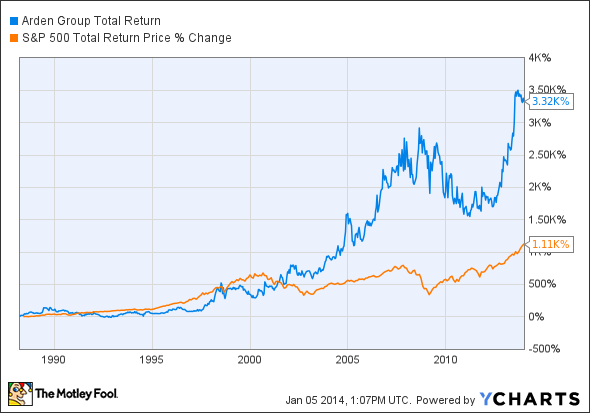The buyout of high-end grocer Gelson's Markets by TPG Capital means there's still money to be made in organic foods. The private equity firm is paying $364 million, or $126.50 per share, for the chain of 17 grocery stores in southern California owned by Arden Group (NASDAQ: ARDNA), and following as it does a spate of IPOs and M&A activity over the past year, it means the end for future deals in the space is not yet in sight.
Regional grocers have come under intense competitive pressure from bigger adversaries like Whole Foods Market and Kroger (KR 0.85%), which have reach and scale unavailable to smaller outlets. While organic produce has long been a staple of Kroger's aisles, its acquisition of Harris Teeter indicates the heightened importance it's placing on the niche, a move that could put an even greater burden on regional grocers and spur more consolidation.
The Arden acquisition represents a 14% premium to Arden's stock from where it was trading before the deal was announced, and a 26% premium from where it was prior to the grocer telling the markets last July it was looking to be bought out. Yet it remains a sleepy, fairly low-profile company for many investors who might not be familiar with it or its grocery store chain, even though, over its lifetime, it's had a tremendous market-beating run.
ARDNA Total Return Price data by YCharts.
When times are tough and cash is short, consumers flock to deep-discount retailers like Wal-Mart and Target to stretch their budget. When things improve and consumers are feeling flush, they're willing to spend more on pricier groceries, suggesting the acquisition of Arden's Gelson's Markets is a signal other regional players like Ingles Markets (IMKTA 0.84%) could become attractive targets.
Industry researcher IBISWorld estimates U.S. supermarket and grocery store revenues are projected to increase just under 1% annually for the next five years, reaching about $538 billion in 2018. To grow, grocers are going to need additional ways to gain a competitive edge, and more acquisitions of established successful grocers could be the way to do this.
Roundy's, a Midwest regional operator, bought 11 stores in Chicago from Safeway in December to operate under its Mariano's banner. Trading as it does at 12 times expected earnings and just a fraction of its sales, this regional operator could also be a player without the burden of the heavy controlling stake the Ingles family has in its supermarket.
Both Fairway Group Holdings and Sprouts Farmers Market took advantage of early interest in the expanding organics opportunity, but where each had a successful IPO, they have both since fallen back to the initial pricing or below it. So rather than the end of activity in the space, the Arden acquisition suggests there's still more to come, and grocery stores could be the express line to profits.


